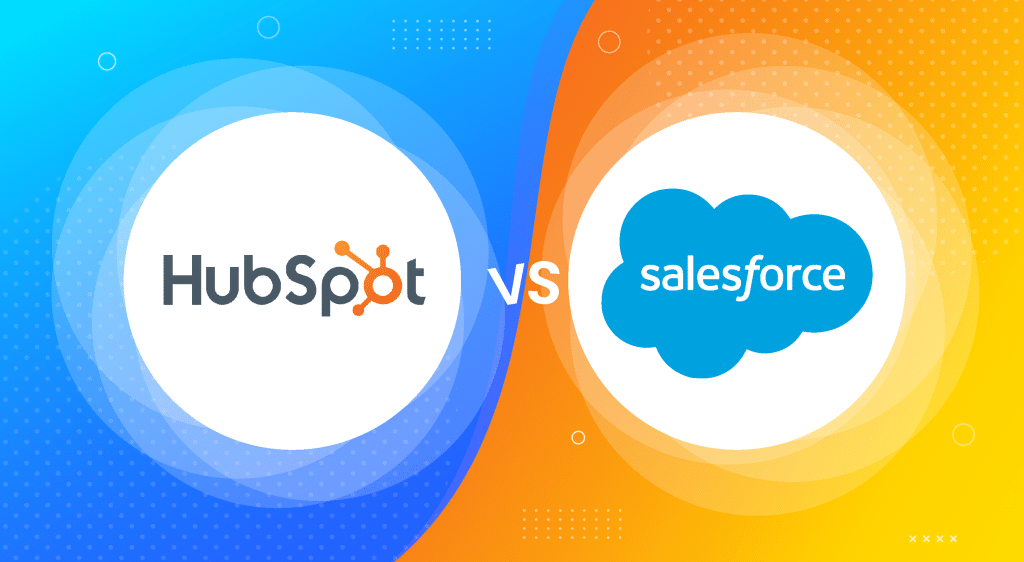Customer Relationship Management CRM) software has evolved from simple contact management tools into robust systems, where businesses store, analyse, and act upon customers' sensitive information. CRM systems have become the digital vaults for sensitive customer information, from identification details and user credentials to transaction and customer interaction histories.
Still, more and more businesses migrate to cloud-based CRM tools, resulting in higher risks of sensitive customer data leakage. As more businesses move their CRM systems to the cloud, they’re opening up new doors for cyber attackers. That’s why it’s no longer enough to rely on traditional security tools. It’s time for a smarter, more proactive approach, where AI plays a key role in keeping customer data safe.
This article explores why CRM solutions need to embrace AI-driven cloud security solutions to protect customer data, prevent breaches, and ensure long-term business resilience.
What is Cloud Security in CRM Software?
In simple terms, cloud security for CRM systems means putting the right technologies, processes, and reinforcing data security and the systems that run in the cloud. At the heart of it, the goal is simple: keep vital customer data safe, private, and out of the wrong hands, no matter where it’s stored or how people access it. But unlike older, on-premise CRM systems that lived behind company firewalls, cloud-based CRMs run on shared infrastructure. And that opens them up to a whole new world of risks, like data breaches, accidental misconfigurations, insider threats, or hackers exploiting open APIs.
These threats can compromise the defense of sensitive data:
- Personally Identifiable Information (PII)
- Financial records
- Customer support and service data
- Behavioral insights used for marketing and personalization.
Protecting sensitive data isn’t something you can do with a one-size-fits-all approach. It takes strong security measures and a layered defense strategy that can handle both familiar threats and new ones that pop up over time, all while staying on the right side of data privacy laws like GDPR, CCPA, and HIPAA.
AI in Cloud Security: How Does It Work?
Artificial Intelligence brings powerful capabilities to cloud security that transformed traditional security systems. AI and machine learning algorithms can analyze vast datasets in real time, detect subtle anomalies and predict threats before they materialize.
Key roles of AI in cloud security involve:
- Real-time Threat Detection: AI systems can monitor traffic, user behaviors, and system logs to identify suspicious activity patterns.
- Predictive Analytics: Leveraging historical data, AI can forecast potential vulnerabilities and suggest preventive measures.
- Behavioral Analysis: Machine learning models learn normal user behavior and flag deviations that might indicate insider threats or account compromises.
AI-driven approaches like AI in Cloud Security help organizations reinforce their cloud security shield with intelligent threat detection and automated incident response.
CRM-Specific Threats: Why AI Is Needed
CRM platforms face unique security challenges due to the accumulation of personal data they hold and the diversity of users accessing them.
Common CRM-Specific Threats include:
- Phishing attacks leveraging CRM contact databases
- Data exfiltration through misconfigured APIs
- Over-permissioned user accounts leading to insider breaches
- Shadow IT and unsanctioned third-party app integrations.
Traditional security tools often struggle to keep pace with these evolving threats, especially when combined with human errors like weak passwords or accidental data sharing.
AI, with its capability for continuous learning and adaptation, becomes essential in these environments for implementing robust security measures. By bringing AI into CRM cloud security, businesses can add an extra layer of smart protection, helping not only to encrypt data but also to detect threats faster, spot unusual activities, and keep customer information safe:
- Suspicious behaviors (such as mass data downloads) can trigger automatic responses.
- AI models can detect complex attack patterns that cross multiple data touchpoints.
- Real-time monitoring ensures that even previously unknown threats are identified.
Key Functions AI Can Enhance in CRM Security
Smart Access Control and Identity Management
AI enhances identity management through behavior-based access control, where login patterns, device recognition, and geolocation are analyzed to grant or deny access. This helps lower the chances of stolen passwords or unauthorized access by adding extra security steps, like multi-factor authentication.
Real-Time Data Anomaly Detection
AI systems continuously scan CRM data flows for anomalies, such as unusual data exports, high-volume queries, or erratic user behavior. These are flagged and isolated to prevent potential breaches.
Automated Compliance Monitoring
AI helps businesses maintain regulatory compliance by automatically monitoring data handling practices, generating audit logs, and alerting teams of potential violations in real time. Together, these AI-driven features create a smarter, more responsive security environment that adapts in real time to threats, keeps customer data safe, and helps businesses stay ahead of both hackers and compliance risks.
Benefits of AI Integration for CRM Software Systems
The integration of AI in CRM cloud security offers a plethora of beneficial, robust security measures:
- Proactive Threat Mitigation: AI enables threat detection and response before damage occurs.
- Operational Efficiency: By automating repetitive tasks, AI reduces the workload on IT and security teams.
- Regulatory Compliance: AI ensures continuous compliance through automated monitoring and reporting.
- Enhanced Customer Trust: Organizations demonstrate robust data protection measures, strengthening customer confidence.
- Cost Savings: Early threat detection prevents expensive data breaches and regulatory fines.
Use Cases: How Companies Use AI for CRM Cloud Security
Case Study 1: AI Detects Sales Pipeline Fraud
A global retail company integrated AI-driven behavior analysis into its CRM. When the system detected an unusual pattern of sudden record deletions by a sales associate, it automatically flagged the activity, restricted the account, and alerted security teams. The prompt action prevented data loss and a potential insider threat.
Case Study 2: Automated Breach Response Saves Millions
A financial services firm using a cloud-based CRM leveraged AI to monitor data transfer patterns. When a malware tried to exfiltrate customer data through a compromised account, the AI system detected the anomaly, initiated lockdown procedures, and blocked the transfer. The automated response helped the company avoid regulatory penalties.
Case Study 3: AI-Based Access Control in a Global CRM
A SaaS company deployed AI-driven access controls that adjusted permissions dynamically based on user behavior and job function changes. This eliminated over-permissioning and reduced security risks from ex-employees and contractors.
Challenges of Implementing AI in CRM Security
Despite its benefits, integrating AI into CRM security comes with challenges related to data protection regulations:
- Technical Complexity: It requires skilled teams to configure, maintain, and optimize AI models.
- Data Quality: If the data going into the system isn’t accurate or clean, it can confuse the AI.
- False Positives: AI models need fine-tuning to reduce unnecessary alerts that might overwhelm security teams.
- Balance of Automation and Human Oversight: AI should assist, not replace, human decision-making in sensitive situations.
Best Practices for CRM Vendors and Users
For Vendors: Ensure AI Capabilities Are Embedded into the Core Security Framework of the CRM
AI capabilities should not be treated as optional add-ons or third-party plugins. Instead, they must be deeply integrated into the CRM software's core architecture. This means AI should be actively involved in critical security processes such as user authentication, traffic monitoring, anomaly detection, API protection, and incident response.
Offer AI-Driven Compliance and Reporting Features
AI greatly simplifies compliance with data privacy regulations such as the General Data Protection Regulation (GDPR), CCPA, and HIPAA by automating monitoring, reporting, and auditing. Vendors should provide built-in AI tools that automatically generate audit trails, flag suspicious data activities, and assist in real-time compliance checks.
Provide Clients with Transparent Insights into How AI Models Make Decisions
To build user trust and ensure ethical AI deployment, CRM vendors must offer transparency into the decision-making logic of their AI systems. This includes clear, understandable dashboards where clients can see why an AI flagged an account, denied access, or recommended an action.
For Users: Vet CRM Vendors for AI Security Features
When selecting a trusted CRM vendor, businesses should thoroughly evaluate their AI security capabilities. Look for advanced AI functions such as behavioral analytics, anomaly detection, automated incident response, and compliance tools. Moreover, include AI security features as key criteria in your vendor selection checklist, rather than focusing solely on CRM functionalities like sales or marketing automation.
Train Staff to Work Alongside AI Tools
AI can be a powerful teammate when it comes to security, but it still needs a human touch to guide, monitor, and make the final calls. Organizations should invest in training programs that educate employees on how to interpret AI security alerts, respond to incidents, and collaborate with automated systems.
All in all, onduct regular cybersecurity awareness workshops emphasizing how AI tools enhance, but do not replace, human decision-making.
Regularly Audit AI System Outputs and Adjust Parameters
AI systems are dynamic and require continuous tuning to remain effective and minimize false positives. Users should schedule regular audits of AI security logs, review flagged incidents, and work with vendors to adjust model thresholds and detection parameters when necessary.
Implement Data Governance Policies That Support AI Analytics
Effective AI security depends on clean, well-governed data. Companies should implement strict data governance policies to ensure that the AI can access accurate, up-to-date data.
Furthermore, set clear rules about who can access what data, keep your data organized and easy to navigate, and use clear labels. These steps help AI do its job more accurately and responsibly.
Future of AI in CRM and Cloud Security
The future of AI in CRM security will see deeper integration with predictive analytics, enabling businesses to anticipate potential threats based on market trends and threat intelligence feeds. We will also see AI-powered privacy tools giving customers greater control over their data.
AI-driven compliance platforms will automate entire audit processes, making CRM security and privacy management seamless and efficient.
Final Thoughts
As CRM tools continue to evolve and store ever more sensitive customer data in the cloud, integrating AI into their security frameworks is no longer a luxury—it’s a necessity to prevent security breaches . AI provides the agility, intelligence, and automation required for protecting sensitive data to stay ahead of emerging threats while ensuring compliance and customer trust.
Organizations that embrace AI-powered cloud security today will position themselves as leaders in data protection, including adherence to the California Consumer Privacy Act, customer loyalty, and business continuity.








